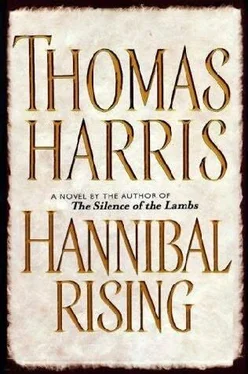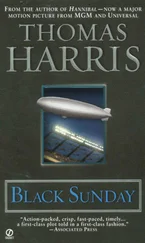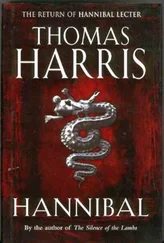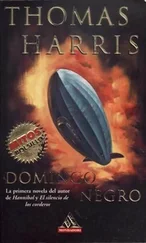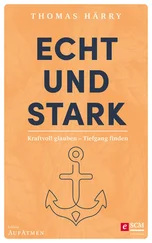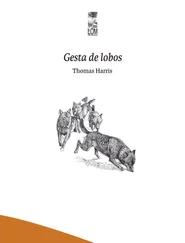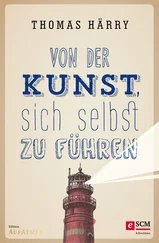"Crossways like that?"
The butcher's scream rang off the trees and the birds flew with a rush.
Paul put his hands on himself and they came away covered with thick blood. He looked down at the wound and tried to hold himself together, intestines spilling in his hands, getting away from him. Hannibal stepping to the side and turning with the blow slashed Paul across the kidneys.
"Or more tangential to the spine?"
Swinging the sword to make Xs in Paul now, Paul's eyes wide in shock, the butcher trying to run, caught across the clavicle, an arterial hiss that spatters Hannibal 's face. The next two blows sliced him behind the ankles and he went down hamstrung and bellowing like a steer.
Paul the Butcher sits propped against the stump. He cannot raise his arms.
Hannibal looks into his face. "Would you like to see my drawing?"
He offers the pad. The drawing is Paul the Butcher's head on a platter with a name tag attached to the hair. The tag reads Paul Momund, Fine Meats. Paul's vision is darkening around the edges. Hannibal swings the sword and for Paul everything is sideways for an instant, before blood pressure is lost and there is the dark.
In his own darkness, Hannibal hears Mischa's voice as the swan was coming, and he says aloud, "Oooh, Anniba!"
Afternoon faded. Hannibal stayed well into the gloaming, his eyes closed, leaning against the stump where stood the butcher's head. He opened his eyes and sat for long minutes. At last he rose and went to the dock. The fish stringer was made of slender chain and the sight of it made him rub the scar around his neck. The fish on the stringer were still alive. He wet his hand before he touched them, turning them loose one by one.
"Go," he said. "Go," and flung the empty chain far across the water.
He turned the crickets loose as well. "Go, go!" he told them. He looked in the canvas bag at the big cleaned fish and felt a twinge of appetite.
"Yum," he said.
PAUL THE BUTCHER'S violent death was no tragedy to many of the villagers, whose mayor and several aldermen had been shot by the Nazis as reprisals for Resistance activity during the occupation.
The greater part of Paul himself lay on a zinc table in the embalming room at Pompes Funebres Roget, where he had succeeded Count Lecter on the slab. At dusk a black Citroen Traction Avant pulled up to the funeral home. A gendarme stationed in front hastened to open the car door.
"Good evening, Inspector."
The man who got out was about forty, neat in a suit. He returned the gendarme's smart salute with a friendly nod, turned back to the car and spoke to the driver and another officer in the backseat. "Take the cases to the police station."
The inspector found the funeral home proprietor, Monsieur Roget, and the Commandant of Police in the embalming room, all faucets and hoses and enamel with supplies in cases fronted with glass.
The commandant brightened at the sight of the policeman from Paris.
"Inspector Popil! I'm happy you could come. You won't remember me but…,"
The inspector considered the commandant. "I do, of course. Commandant Balmain. You delivered De Rais to Nuremberg and sat behind him at the trial."
"I saw you bring the evidence. It's an honor, sir."
"What do we have?"
The funeral director's assistant Laurent pulled back the covering sheet.
Paul the Butcher's body was still clothed, long stripes of red diagonally across him where the clothing was not soaked with blood. He was absent his head.
"Paul Momund, or most of him," the commandant said. "That is his dossier?"
Popil nodded. "Short and ugly. He shipped Jews from Orleans." The inspector considered the body, walked around it, picked up Paul's hand and arm, its rude tattoo brighter now against the pallor. He spoke absently as though to himself. "He has defense wounds on his hands, but the bruises on his knuckles are days old. He fought recently."
"And often," the mortician said.
Assistant Laurent piped up. "Last Saturday he had a bar fight, and knocked teeth from a man and a girl." Laurent jerked his head to illustrate the force of the blows, the pompadour bobbing on his petite skull.
"A list please. His recent opponents," the inspector said. He leaned over the body, sniffing. "You have done nothing to this body, Monsieur Roget?"
"No, Monsieur. The commandant specifically forbade me…"
Inspector Popil beckoned him to the table. Laurent came too. "Is this the odor of anything you use here?"
"I smell cyanide," Mortician Roget said. "He was poisoned first!"
"Cyanide is a burnt-almond smell," Popil said.
"It smells like that toothache remedy," Laurent said, unconsciously rubbing his jaw.
The mortician turned on his assistant. "Cretin! Where do you see his teeth?"
"Yes. Oil of cloves," Inspector Popil said. "Commandant, could we have the pharmacist and his books?"
Under the tutelage of the chef, Hannibal baked the splendid fish in its scales with herbs in a crust of Brittany sea salt and now he took it from the oven. The crust broke at the sharp tap with the back of a chef's knife and peeled away, the scales coming with it, and the kitchen filled with the wonderful aroma.
"Regard, Hannibal," the chef said. "The best morsels of the fish are the cheeks. This is true of many creatures. When carving at the table, you give one cheek to Madame, and the other to the guest of honor. Of course, if you are plating in the kitchen you eat them both yourself."
Serge came in carrying staple groceries from the market. He started unpacking the bags and putting food away.
Behind Serge, Lady Murasaki came quietly into the kitchen.
"I saw Laurent at the Petit Zinc," Serge said. "They haven't found the butcher's damned ugly head yet. He said the body was scented with-get this-oil of cloves, the toothache stuff. He said-"
Hannibal saw Lady Murasaki and cut Serge off. "You really should eat something, my lady. This will be very, very good."
"And I brought some peach ice cream, fresh peaches," Serge said.
Lady Murasaki looked into Hannibal 's eyes for a long moment.
He smiled at her, perfectly calm. "Peach!" he said.
MIDNIGHT, LADY MURASAKI lay in her bed. The window was open to a soft breeze that carried the scent of a mimosa blooming in a corner of the courtyard below. She pushed the covers down to feel the moving air on her arms and feet. Her eyes were open, looking up at the dark ceiling, and she could hear the tiny clicks when she blinked her eyes.
Below in the courtyard the old mastiff stirred in her sleep, her nostrils opened and she took in a lot of air. A few folds appeared in the pelt on her forehead, and she relaxed again to pleasant dreams of a chase and blood in her mouth. Above Lady Murasaki in the dark, the attic floor creaked. Weight on the boards, not the squeak of a mouse. Lady Murasaki took a deep breath and swung her feet onto the cold stone floor of the bedroom. She put on her light kimono, touched her hair, gathered flowers from a vase in the hall and, carrying a candle lamp, mounted the stairs to the attic.
The mask carved on the attic door smiled at her. She straightened, she put her hand on the carved face and pushed. She felt the draft press her robe against her back, a tiny push, and far, far down the dark attic she saw the flicker of a tiny light. Lady Murasaki went toward the light, her candle lamp glowing on the Noh masks watching her, and the hanging row of marionettes gestured in the breath of her passing. Past wicker baskets and stickered trunks of her years with Robert, toward the family altar and the armor where candles burned.
A dark object stood on the altar before the armor. She saw it in silhouette against the candles. She set her candle lamp on a crate near the altar and looked steadily at the head of Paul the Butcher standing in a shallow suiban flower vessel. Paul's face is clean and pale, his lips are intact, but his cheeks are missing and a little blood has leaked from his mouth into the flower vessel, where blood stands like the water beneath a flower arrangement. A tag is attached to Paul's hair. On the tag in a copperplate hand: Momund, Boucherie de Qualité.
Читать дальше
